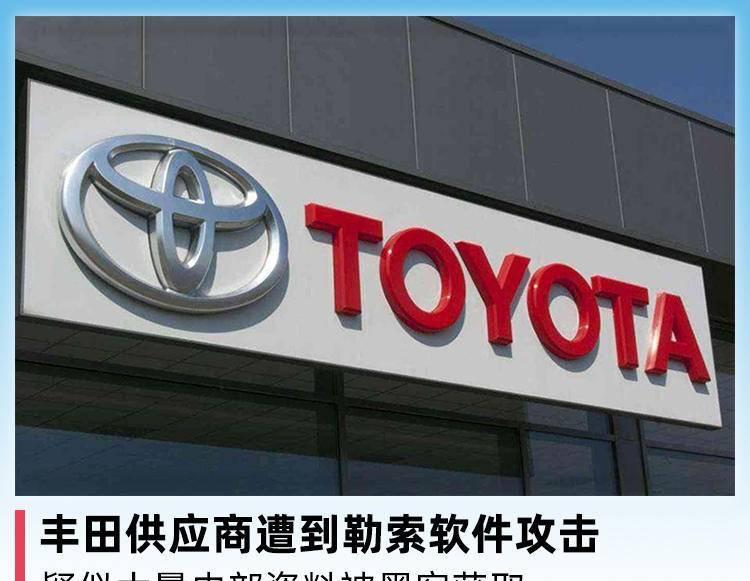
Toyota is becoming a target for hackers.
On March 13, according to foreign media reports, Toyota's subsidiary, Japan's Denso Corporation (hereinafter referred to as "Denso"), suffered a suspected ransomware attack, and a large amount of internal information was obtained by hackers.
On Sunday, a hacking group called Pandora issued a statement saying it had obtained more than 157,000 purchase orders, emails and design drawings totaling 1.4TB of information, while the group threatened Denso that it would publish the data on the dark web if the ransom was not paid as required.
In response, DENSO spokesman Izumi Saito said that its subsidiary in Germany was detected to have encountered unauthorized login and ransomware on Thursday, but DENSO's current operations have not been affected by this incident. However, how to solve the follow-up, Denso did not disclose.
And this is not the first time Toyota has suffered a cyber attack.
It is understood that counting the denso was blackmailed, Toyota was hacked at least five times during the period from 2019 to 2022. It also includes a malware attack in Australia, the breach of about 3.1 million Japanese customer data, a scam that cost a subsidiary $37 million, and a system failure two weeks ago.
It is reported that Toyota has a company engaged in the production of automotive interior and exterior trim parts, called Kojima Industries, which mainly produces composite materials and plastic parts for Toyota's interiors, and also produces related parts for Toyota's hybrid and fuel cell electric vehicles.
Two weeks ago, Kojima Stamping Industries suffered a cyberattack that caused a system failure that interrupted Toyota's parts management system and eventually had to temporarily halt auto production at 14 factories and 28 production lines throughout Japan.
On March 2, toyota plants in Japan resumed production, but the temporary network set up by Kojima Stamping Industries still affected the start of construction of Toyota's vehicle body due to the lack of ability to respond to orders for a large number of parts.
In this context, Toyota also informed some suppliers of its new global production plans for April-June, which was expected to produce about 2.8 million units in April-June, but has now been downgraded to 2.5 million units, a total decrease of 300,000 units. This was a decrease of approximately 150,000 units in April, a decrease of approximately 100,000 units in May, and a decrease of approximately 50,000 units in June. At the same time, Toyota's global production plan for FY2022, which previously produced 11 million units, is expected to be revised.